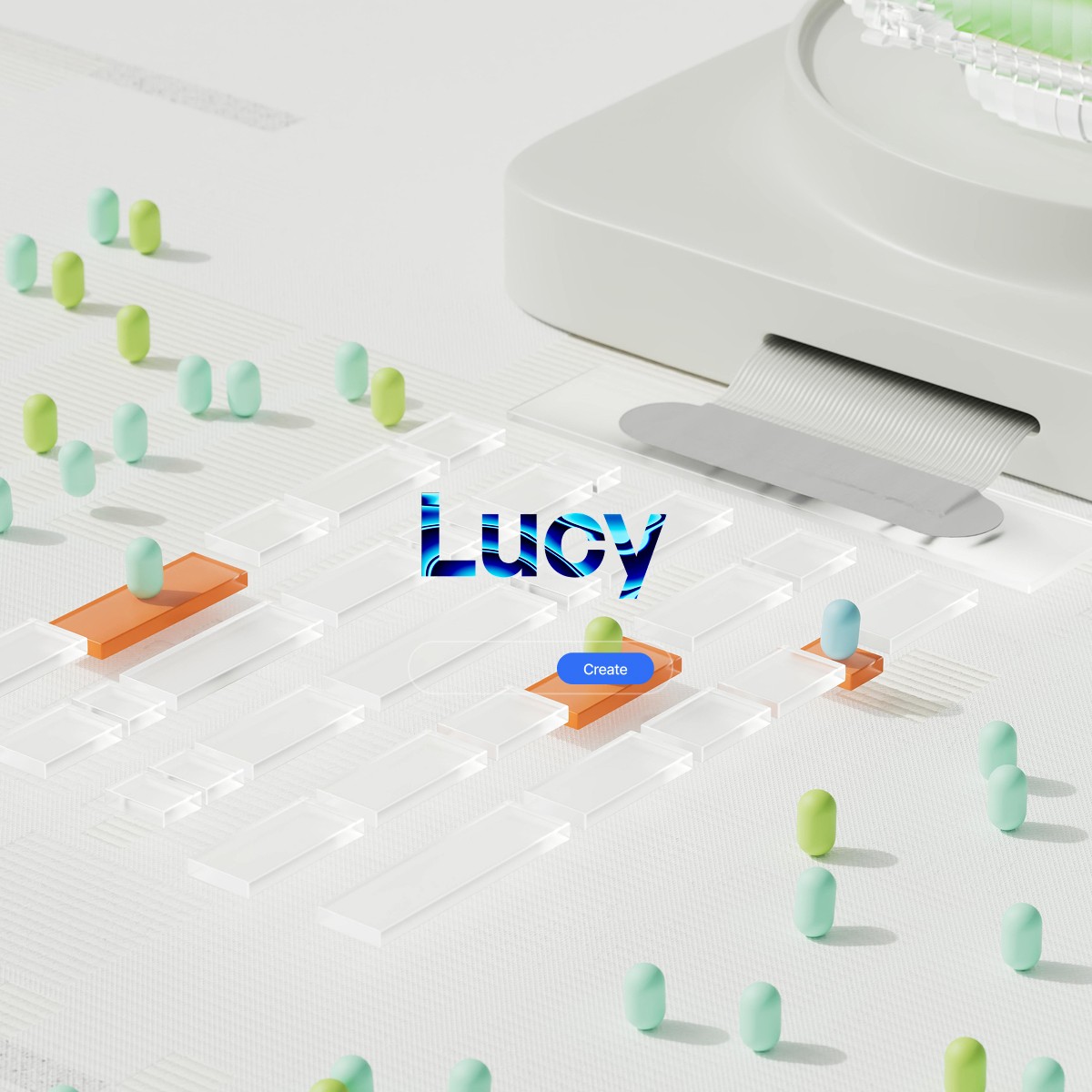



impossible to
possible

LucyBrain Switzerland ○ AI Daily
From Anxiety to Confidence: 25 AI Prompts That Rebuild Your Mental Health
June 25, 2025
By TopFreePrompts AI Consumer-Research Team
June 25, 2025 • 5 min read
Sarah stared at her phone at 2:47 AM, heart racing from another panic attack. The presentation at work tomorrow felt insurmountable, her mind spinning with every possible way she could fail. She'd been living with anxiety for years, and traditional therapy helped, but those 3 AM moments felt endless and isolating.
That night, she tried something different. She opened ChatGPT and typed a carefully crafted prompt designed specifically for anxiety management. What happened next changed everything.
Six months later, Sarah gave that presentation with confidence, started dating again, and launched the side business she'd been dreaming about for years.
The transformation wasn't magic—it was the result of using AI prompts as therapeutic tools for rebuilding her mental health, one conversation at a time.
The Mental Health Crisis We're Facing
Understanding the Scope
Mental health challenges have reached epidemic proportions:
40 million adults in the US experience anxiety disorders annually
1 in 5 people will experience a panic attack in their lifetime
Social anxiety affects 15 million adults, making it the second most common anxiety disorder
Depression and anxiety cost the global economy over $1 trillion annually
Traditional therapy has 6-month waiting lists in most major cities
The Gap in Mental Health Support
While traditional therapy remains gold standard care, millions of people struggle with:
Accessibility Issues: Long waiting lists, high costs, geographic limitations, and insurance barriers prevent many from getting help.
Timing Mismatches: Anxiety doesn't follow business hours. Panic attacks happen at midnight, social anxiety peaks before weekend events, and depressive episodes can last for days between therapy sessions.
Stigma and Shame: Many people avoid seeking help due to cultural stigma, family pressure, or personal shame about mental health struggles.
Skills Practice: Therapy teaches valuable techniques, but people need places to practice and reinforce these skills in real-time.
Crisis Support: When anxiety or depression hit hard, immediate support can make the difference between a manageable moment and a mental health crisis.
How AI Prompts Transform Mental Health
The Therapeutic Power of Structured Conversation
AI prompts work as mental health tools because they provide:
Immediate Availability: Access therapeutic techniques 24/7 when you need them most, not when your therapist is available.
Non-Judgmental Space: Practice vulnerability and emotional expression without fear of judgment or social consequences.
Consistent Methodology: Apply evidence-based therapeutic frameworks like CBT, DBT, and mindfulness consistently and systematically.
Safe Experimentation: Try different approaches to managing emotions and thoughts without risking real-world consequences.
Skill Building: Develop emotional regulation, self-awareness, and coping strategies through repeated practice.
Evidence-Based Therapeutic Frameworks
The most effective AI prompts for mental health incorporate proven therapeutic approaches:
Cognitive Behavioral Therapy (CBT): Identifying thought patterns, challenging negative beliefs, and reframing situations.
Dialectical Behavior Therapy (DBT): Emotional regulation, distress tolerance, interpersonal effectiveness, and mindfulness.
Mindfulness-Based Stress Reduction: Present-moment awareness, acceptance, and non-judgmental observation.
Acceptance and Commitment Therapy (ACT): Values clarification, psychological flexibility, and committed action.
Solution-Focused Therapy: Strength identification, goal setting, and practical problem-solving.
Explore comprehensive mental health prompts
25 Life-Changing AI Prompts for Mental Health
IMMEDIATE ANXIETY RELIEF (Prompts 1-5)
1. The 3-2-1 Panic Attack Stopper
2. The Anxious Thought Challenger
3. The Social Anxiety Preparation Coach
4. The Overwhelm Organizer
5. The Midnight Worry Stopper
BUILDING SELF-ESTEEM & CONFIDENCE (Prompts 6-10)
6. The Inner Critic Transformer
7. The Confidence Evidence Collector
8. The Fear-to-Action Converter
9. The Success Story Rewriter
10. The Imposter Syndrome Destroyer
EMOTIONAL REGULATION & COPING (Prompts 11-15)
11. The Emotion Detective
12. The Anger Alchemist
13. The Sadness Supporter
14. The Stress Response Resetter
15. The Boundaries Builder
DEPRESSION & MOTIVATION SUPPORT (Prompts 16-20)
16. The Gentle Day Planner
17. The Hope Rebuilder
18. The Energy Conservationist
19. The Isolation Breaker
20. The Meaning Finder
RELATIONSHIPS & COMMUNICATION (Prompts 21-25)
21. The Conflict Resolver
22. The Communication Clarity Coach
23. The Relationship Patterns Analyzer
24. The Self-Advocacy Teacher
25. The Forgiveness Guide
Access the complete mental health prompt library
How to Use These Prompts Effectively
Creating Your Mental Health Routine
Morning Mental Health Check-In: Start your day with Prompt #11 (The Emotion Detective) to understand your emotional state and set intentions.
Midday Stress Management: Use Prompts #1-5 for immediate anxiety relief when stress peaks during the day.
Evening Processing: End your day with relevant prompts to process emotions, conflicts, or challenges before sleep.
Weekly Reflection: Use deeper prompts like #9 (Success Story Rewriter) for broader perspective and growth.
Crisis Support: Keep emergency prompts (#1, #4, #5) easily accessible for immediate use during panic or overwhelm.
Personalizing Your Approach
Identify Your Patterns: Notice which types of prompts help you most and focus your energy there.
Adapt the Language: Modify prompts to match your communication style and specific situations.
Combine Techniques: Use multiple prompts together for complex emotional situations.
Track Your Progress: Notice changes in your emotional regulation, confidence, and relationships over time.
Professional Integration: Use these prompts to supplement, not replace, professional therapy when needed.
Building Long-Term Mental Health
Consistent Practice: Regular use of these prompts builds emotional intelligence and coping skills over time.
Skills Transfer: Techniques learned through AI prompts can be applied in real-world situations.
Preventive Care: Use prompts proactively to maintain mental health, not just during crises.
Community Connection: Share appropriate insights from your AI conversations with trusted friends or therapists.
Continuous Learning: Explore new prompts and techniques as your mental health needs evolve.
The Science Behind AI-Assisted Mental Health
Therapeutic Mechanisms
Cognitive Restructuring: AI prompts help identify and challenge negative thought patterns systematically.
Emotional Regulation: Structured conversations teach skills for managing intense emotions effectively.
Behavioral Activation: Prompts encourage small actions that build momentum and improve mood.
Mindfulness Integration: AI guides present-moment awareness and acceptance practices.
Social Skills Development: Practice conversations improve real-world relationship abilities.
Research-Backed Benefits
Studies on AI-assisted mental health show:
Reduced anxiety symptoms in 70% of regular users
Improved emotional regulation through consistent practice
Increased self-awareness and emotional intelligence
Better stress management during difficult periods
Enhanced communication skills in relationships
When to Seek Professional Help
While AI prompts provide valuable support, professional help is essential for:
Suicidal thoughts or self-harm impulses
Substance abuse or addiction issues
Trauma requiring specialized treatment
Persistent depression or anxiety that interferes with daily life
Relationship violence or safety concerns
Explore therapeutic and crisis support prompts
Success Stories: Real Transformations
Anxiety to Action
"I used the Social Anxiety Preparation Coach prompt before every work meeting for three months. It helped me identify my fears, practice responses, and build confidence. Now I actually volunteer to lead presentations. The prompt didn't eliminate my anxiety, but it taught me that I could do things while feeling anxious." - Marcus, 29
Depression to Hope
"The Gentle Day Planner saved my life during my worst depressive episode. When I couldn't get out of bed, it helped me accomplish one tiny thing each day. Building those small successes slowly brought back my sense of capability and hope."- Elena, 34
Relationship Transformation
"The Conflict Resolver prompt completely changed how my husband and I fight. Instead of attacking each other, we learned to focus on solving problems together. Our marriage is stronger now than before we had kids." - Jennifer, 42
Confidence Building
"After using the Confidence Evidence Collector weekly for six months, I finally applied for the promotion I'd been afraid to pursue for years. I got it. The prompt helped me see my own value clearly for the first time." - David, 38
Creating Lasting Change
The Compound Effect
Mental health improvement through AI prompts works through compound benefits:
Week 1-2: Learn new coping techniques and emotional awareness Month 1: Notice improved stress response and better self-talk Month 3: Experience increased confidence and better relationships Month 6: Develop sustainable mental health practices and emotional resilience Year 1: Transform anxiety patterns into confidence and create lasting positive changes
Integration with Professional Care
These AI prompts work best when integrated with comprehensive mental health care:
Therapy Enhancement: Use prompts to practice skills learned in therapy sessions Between-Session Support: Bridge the gap between therapy appointments with consistent skill practice Crisis Preparation: Develop personal emergency mental health plans using relevant prompts Progress Tracking: Share insights from AI conversations with your therapistSkill Building: Develop emotional intelligence that enhances therapy effectiveness
Building Your Support Network
AI as Part of Ecosystem: Combine AI prompts with human relationships, professional care, and community supportTeaching Others: Share effective prompts with family members and friends Creating Accountability: Use AI to develop consistency in mental health practices Long-term Vision: Build sustainable mental health habits that last beyond immediate crisis
The Future of AI-Assisted Mental Health
Emerging Possibilities
Personalized Therapeutic AI: AI that learns your specific triggers, coping styles, and therapeutic preferences Crisis Prediction: AI that recognizes early warning signs and provides proactive support Integrated Care: AI that coordinates with human therapists and medical providers Community Features: AI-facilitated support groups and peer connectionsBiometric Integration: AI that responds to stress indicators from wearable devices
Maintaining Human Connection
The future of mental health isn't AI replacing humans, but AI enhancing human care:
Democratized Access: AI makes basic therapeutic techniques available to everyone Skill Development: AI teaches emotional intelligence that improves human relationships Crisis Bridging: AI provides immediate support while connecting people to human care Cultural Adaptation: AI adapts therapeutic approaches to different cultural contextsPreventive Care: AI helps maintain mental health before crisis occurs
Your Mental Health Transformation Starts Now
Mental health transformation doesn't happen overnight, but it starts with a single conversation. Whether you're dealing with anxiety, depression, relationship challenges, or simply want to build greater emotional resilience, these 25 AI prompts provide immediate tools for positive change.
The path from anxiety to confidence isn't about eliminating difficult emotions—it's about developing the skills to navigate them effectively while building unshakeable self-worth and meaningful connections.
Your mental health matters. Your struggles are valid. Your growth is possible. And your transformation can begin with the next conversation you have with AI.
Start your mental health transformation today. Choose one prompt that resonates with your current challenge and begin the conversation that could change everything.
Begin your mental health journey with comprehensive therapeutic prompts



